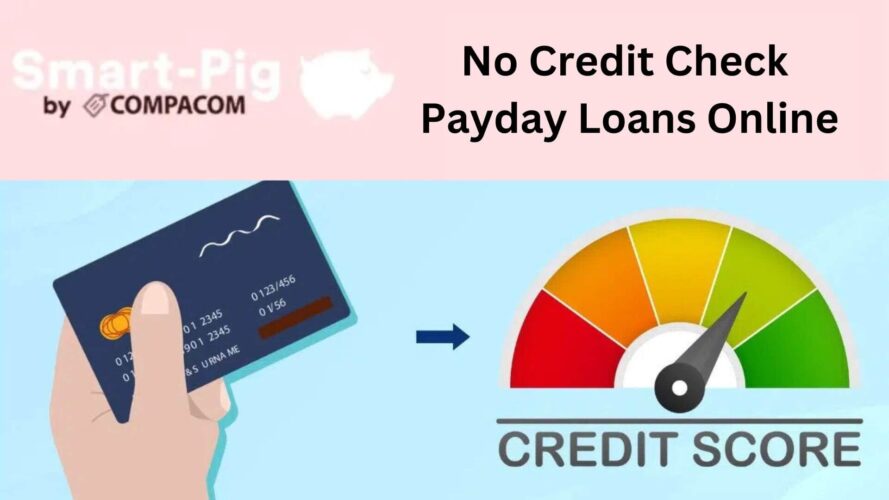
Facing a cash crunch can be stressful, especially if you rely on Social Security benefits. Maybe an unexpected bill arrived, or your car needs repairs. The internet seems full of solutions – “Social Security Loans,” “Cash Advance,” “Online Loans for SSI Recipients”, “Disabiliry Loans”, “Loans for Seniors”. But before you jump in, let’s explore what these options offer, and uncover their main features – both positive and negative. We’ll provide you with a safe way of borrowing against social security as well as suggest other instant cash financing options.
What Are Social Security Loans?
The term “Social Security Loans” can be enticing, especially when facing financial difficulties. However, there’s a crucial truth to understand: Social Security itself does not offer loans. It’s a retirement and disability program that provides monthly benefits to eligible individuals.
Here’s a breakdown of some terms you might encounter:
- Interest-free loan from Social Security: This is more a myth than a legal Government program. Social Security benefits are a fixed monthly payment, not an advance or loan.
- Payday loans for Social Security recipients: These are offered by online direct lenders, not Social Security. You are supposed to use an SSI debit card to get a payday loan. Though these short-term loans are considered a bit risky due to high-interest rates and fees, they still can be helpful at times of emergency.
- Advance on SSI check: There’s no such official program but some financial institutions or prepaid debit card providers may offer features like early access to deposited funds, but these often come with associated fees.
Social Security vs Disability Loans
Here’s the key difference between Social Security loans and loans on disability:
- Social Security Loans (don’t exist): There’s no program within Social Security that offers loans, regardless of your reason for receiving benefits (retirement or disability).
- Loans on Disability: These are loans offered by private lenders, not the government. While someone receiving Social Security Disability Insurance (SSDI) might qualify for a loan based on their creditworthiness and income (including their SSDI benefits), these loans can be risky with high-interest rates.
Can I Borrow Money From My Social Security Benefits?
How do I get emergency money from Social Security? Let’s clear out if it’s possible and how it works.
First of all, Social Security itself does not offer loans. It’s a federally funded program that provides monthly benefits based on your contributions over your working life. These benefits are primarily for seniors on retirement income, but also for disability and survivors of deceased workers.
While there’s no built-in mechanism to borrow against your future benefits or receive an advance on your monthly payment, you can still use your SSI as income proof to get approved for a loan.
Direct lenders might offer loans considering your Social Security income and let customers apply for a payday loan on SSI debit card. However, keep in mind that this type of funding typically has higher interest rates compared to traditional personal loans. Carefully assess the terms and ensure you can comfortably afford the repayments before committing.
How To Borrow From Social Security?
Though it’s illegal to take out a loan directly from your benefits, you can apply for urgent financing payday loans online and use your SSI as income proof. Just follow a few simple steps:
- Complete the application for the necessary loan amount online on a lender’s site.
- Provide all the required documents including a proof of income. Social security can serve as one.
- Once the lender approves your request, they contact you and discuss the rates and terms.
- If you come to a consensus, sign the agreement and get the money to your bank account or directly to SSI debit card.
Ways to Prove Income for Cash Advance Loans on Social Security
Before extending credit, astute financial institutions meticulously assess a borrower’s capacity for debt service. This process hinges on verifying income streams. Social Security recipients can leverage several instruments to demonstrate their ability to repay:
- Monthly Bank Statements: These provide a transparent audit trail, showcasing the consistent influx of Social Security disbursements.
- Benefits Verification Letter: A formal document procured from the Social Security Administration (SSA) that definitively confirms Social Security benefit receipt.
- Tax Returns: These comprehensive financial statements offer a holistic view of income, including Social Security benefits.
Beyond Income: A Multifaceted Assessment
While income verification is a cornerstone of loan qualification, lenders employ a multifaceted approach to evaluate creditworthiness. Here are some additional factors that influence loan approval:
- Credit Score: This critical metric (ranging from 300 to 850) encapsulates a borrower’s historical debt management practices, including existing obligations, payment history, and credit history duration. A stellar credit score (above 700) generally translates into more favorable loan terms.
- Debt-to-Income Ratio (DTI): This key metric expresses the percentage of a borrower’s gross monthly income that is dedicated to servicing existing debt obligations. A lower DTI indicates a borrower’s superior capacity to manage additional debt.
- Collateralization: Secured loans necessitate pledging assets as collateral. In the event of default, the lender can seize these assets to recoup outstanding loan balances.
- Employment Status: While Social Security is a reliable income source, some lenders might view additional income streams, such as part-time employment or pensions, as positive indicators of a borrower’s overall financial health.
Loans for Social Security Disability Insurance Recipients
Disability loans function similarly to personal loans, but with a crucial distinction: they cater specifically to the needs of those receiving disability income. Lenders assess your financial situation – disability income, additional income streams, and existing expenses – to determine a suitable loan amount. This ensures responsible borrowing practices tailored to your specific circumstances.
Interest rates vary depending on the lender and your creditworthiness. So do the terms. Short-term payday loans offer quicker repayment schedules, while long-term options provide extended grace periods and smaller monthly installments. This flexibility allows you to choose a repayment plan that aligns with your income and budgetary constraints.
Conclusion: Social Security – Safety Net, Not Loan Source
Social Security benefits are a vital safety net, not a source of instant cash. While “loans” from Social Security itself don’t exist, alternative options are available:
- Payday loans: Quick but expensive, use them with caution due to high-interest rates.
- Loan approval based on SSI: Social Security income can help qualify for traditional loans, but responsible borrowing is key.
Explore all options and prioritize responsible financial management to avoid future debt burdens. Remember, there are government programs and resources to support SSI recipients.
FAQ
Can I Withdraw My Social Security Earlier?
No, you can’t withdraw your Social Security benefits early in the traditional sense. You can, however, receive them earlier than your Full Retirement Age (FRA), but this reduces your monthly benefit.
- Early Claim (Age 62): Get benefits earlier but with a permanent reduction (up to 30% less).
- Full Retirement Age (FRA): Receive your full, unreduced benefit.
- Delayed Retirement (up to Age 70): Earn delayed retirement credits that increase your monthly benefit.
Carefully consider your situation (financial needs, life expectancy) before claiming to maximize your Social Security income.
Can SSI Be Garnished to Pay Debts?
SSI stands strong as a shield against garnishment. This means even in the face of debts, the government safeguards this essential benefit to ensure your basic needs are met.
Am I Eligible for Other Government Programs While on SSI?
While SSI provides a vital safety net, it doesn’t have to be your only lifeline. Receiving SSI opens doors to a treasure chest of government programs designed to empower individuals with limited income and disabilities. Let’s delve into some hidden gems:
- Medicaid: In most states, SSI acts as a golden ticket to Medicaid, granting you access to comprehensive health insurance coverage. This ensures your well-being isn’t compromised by medical bills.
- SNAP: Also known as food stamps, SNAP acts like a superhero for your grocery list. It injects extra resources to ensure a healthy and nutritious diet on your plate.
- Housing assistance programs come to the rescue! Explore options like Section 8 or public housing programs. These can significantly reduce your housing burden and free up resources for other needs.
- The Low-Income Home Energy Assistance Program (LIHEAP) acts like a knight in shining armor during extreme weather, helping you stay warm in the winter and cool in the summer.
- National Eldercare Locator, etc.
Is $800 Monthly Income Enough To Get a Loan?
It’s difficult to say definitively whether $800 monthly income is enough to get a loan because lenders consider several factors beyond just your income. To raise your approval chances you’d better apply for small loans like payday cash advance.
Can I use my future benefits as collateral for a loan?
Social Security benefits are protected by federal law. This protection prevents creditors from seizing these benefits to satisfy a defaulted loan.
How does receiving a loan affect my Social Security?
Getting a loan won’t mess with your Social Security checks. That’s because the law protects your benefits from creditors. However, lenders will consider your Social Security income when deciding if you qualify for a loan and what interest rate you’ll get. Here’s the key: be upfront about your income and only borrow what fits your budget to avoid future headaches.











